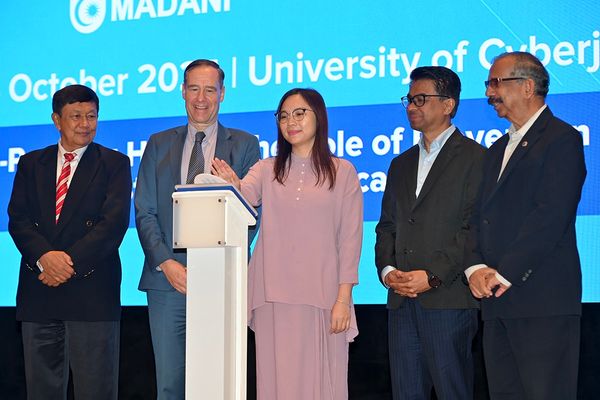By Danial Dzulkifly
CYBERJAYA, Oct 23 — The Selangor government is investing heavily in proactive care measures as a strategy to reduce patient load on the increasingly strained national healthcare system.
Speaking at the inaugural Selangor Public Health Conference, state executive councillor for public health Jamaliah Jamaluddin said the state's focus is on providing proper support for communities through early detection, mental health services and outpatient care, crucial measures for ensuring the long-term sustainability of healthcare.
"By addressing health issues early, before they escalate, we are not only saving lives but also easing the pressure on our hospitals and public clinics," she said in her opening speech at the University of Cyberjaya, here, today.
Jamaliah explained that the national healthcare system is at a critical juncture, with reactive care no longer a sustainable option and that the state must pivot towards preventive measures.
“Whether it’s the rise of non-communicable diseases, the mental health crisis, or the looming threat of future pandemics, our system is at a crossroads.
“The old ways of thinking are no longer sufficient; we must shift from reactive care to proactive prevention, which is exactly the focus of this conference.”
She went on to highlight some of Selangor’s key public health initiatives, including Selangor Saring, a comprehensive free screening programme for non-communicable diseases such as diabetes, hypertension, and cancer.
The state has also initiated Mental Sehat for mental health support, and Iltizam Sihat Selangor, which offers up to RM10,000 annually for outpatient treatment and hospitalisation.
Another programme, Bantuan Sihat Selangor, provides financial aid to low-income families for medical treatments like dialysis and cataract surgery.
Jamaliah also noted that many of Selangor’s public health pilot projects are often adopted at the federal level.
She said the two-day conference beginning today serves as a platform for the state to gather feedback on how to improve existing initiatives and explore new healthcare ideas.
Jamaliah also expressed hope that all major stakeholders will play their part in ensuring the national healthcare system remains sustainable, resilient, and equitable.
She said an ideal healthcare system not only treats diseases but focuses on prevention, aiming to stop health issues before they take root.
“Public health is the cornerstone of a thriving society, encompassing not just the absence of disease, but the overall well-being of individuals and communities,” she said.




